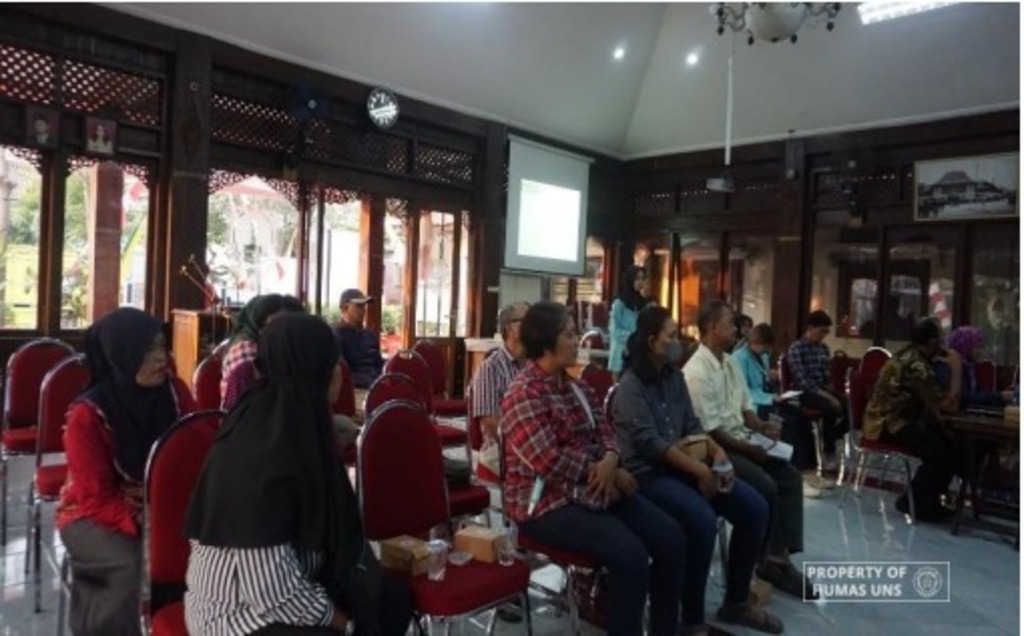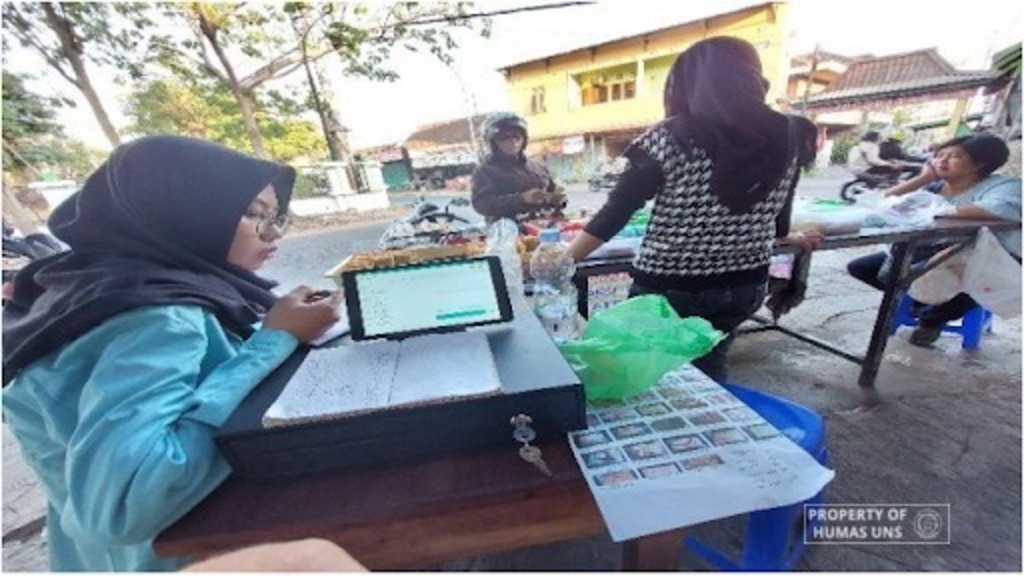UNS – The Research Group (RG) Mathematical Soft Computing at Universitas Sebelas Maret (UNS) Surakarta conducted training for Micro, Small, and Medium Enterprises (SMEs) in the Banjarsari sub-district of Surakarta. The guidance for SMEs also involved students from the Faculty of Mathematics and Natural Sciences (FMIPA) UNS who are part of the Community Service (PKM) team within the RG.
This community service activity was carried out by lecturers from the Mathematics Study Program at the Faculty of Mathematics and Natural Sciences (FMIPA) UNS. The team comprised Dr. Dewi Retno Sari Saputro, S.Si., M.Kom.; Dr. Sutanto, S.Si., DEA.; Dra. Purnami Widyaningsih, M.App.SC.; Nughthoh Arfawi Kurdhi, S.Si., M.Sc., Ph.D.; and Ririn Setiyowati, S.Si., M.Sc.
RG Mathematical Soft Computing implemented a digital literacy strategy for financial management in SMEs. The activity collaborated with the Thematic Student Community Service (KKN, or Kuliah Kerja Nyata) team of Mathematics students from FMIPA UNS. They introduced a computer-based cash register system known as the Point of Sales (POS) system.
The POS application is a more comprehensive and affordable substitute for traditional cash registers. Its functions include generating sales and purchase reports, monitoring fast-and slow-selling items, and storing buyer data. Additionally, the system can store product data, calculate profit and loss, manage inventory, and more.
From the records of this community service initiative, the SMEs selected were Bubur Ayam Nusasari and Tabita Snack. Apart from choosing these two SMEs, observations were also made on other SMEs in Banjarsari.


Dr. Dewi explained to uns.ac.id that they encountered several issues, including a lack of financial reports to evaluate operational efficiency and make business decisions, not separating business funds from personal funds, and difficulties in managing inventory, which needed to be reevaluated between the products sold.
She stated, “In terms of financial reporting, few economic entities summarize finances using digital tools. Many manual records rely on the intuition of economic actors rather than using standard accounting practices. Regarding this issue, POS cash register assistance was provided.”
The content of this guidance activity included knowledge of and how to use digital financial services. There was also a socialization effort for other SMEs in the Banjarsari sub-district. The speakers included Paiman, experienced in managing 20 SMEs in one food court, and Fiska Amanda Mulia, an entrepreneur and digital planner. This socialization aimed to broaden the experience of local SMEs in managing digital-based businesses.
Dr. Dewi added that during the PKM period from August to October 2023, they used a continuous literacy enhancement strategy to enable SMEs to manage their businesses digitally. Digital financial literacy would significantly aid in financial management, cash flow, and income. As the team leader, she hoped that the role of digitization for SMEs in understanding financial literacy through digital recording would continue to increase.
Humas UNS
Reporter: R. P. Adji
Editor: Dwi Hastuti
留言 (0)